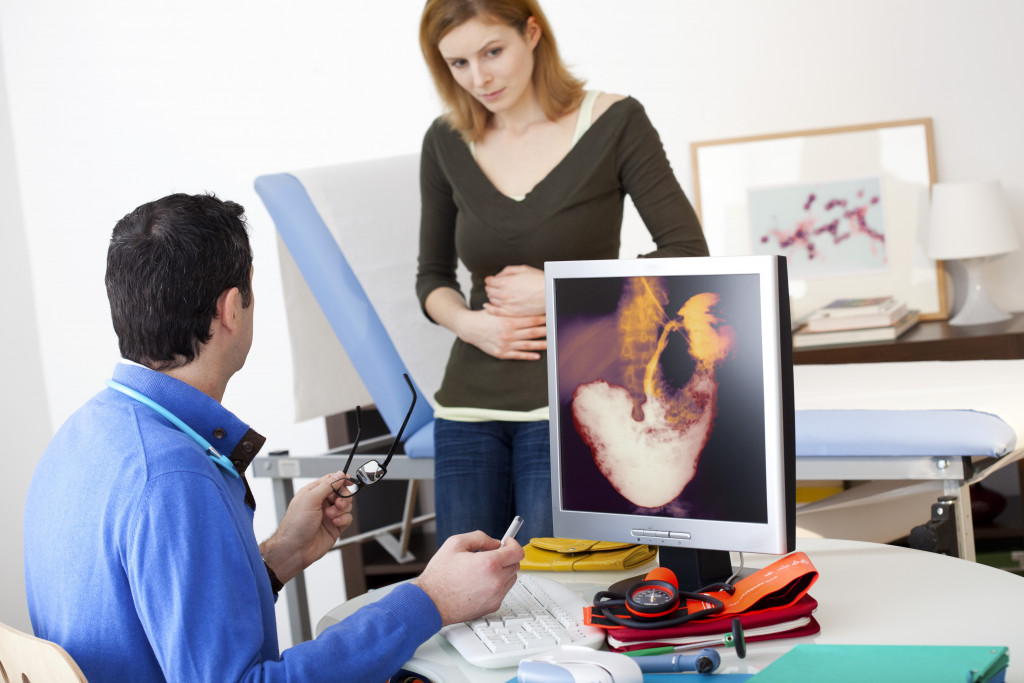People are more health-conscious than ever before and for a good reason. Our modern lifestyles can often take a toll on our health. One of the most common problems people experience is gastrointestinal distress. Some of these are:
- Crohn’s Disease
- Diarrhea
- Acid Reflux (GER & GERD)
- Diverticulosis & Diverticulitis
- Bowel Control Problems (Fecal Incontinence)
- Irritable Bowel Syndrome (IBS)
- Lactose Intolerance
Did you know that twenty million Americans have chronic digestive ailments? Digestive diseases account for 25% of all surgical procedures. This calls for some extreme self-care when it comes to our lifestyle. Here are 6 tips for better digestion and a healthier gut.
Eating high-fiber diet
Fiber is an essential component of a healthy diet, and it’s necessary for people who suffer from digestive problems. Fiber helps to bulk up stool and keep things moving through the digestive system regularly. This can help reduce or eliminate constipation, diarrhea, and acid reflux.
Know that there are two types of fiber: soluble and insoluble. Both are important for gut health, but soluble fiber is especially beneficial for people with digestive problems. When dissolved in water, soluble fiber forms a gel-like substance that aids in forming a solid stool. Insoluble fiber, on the other hand, does not dissolve in water and helps to add bulk to stool. This can help to relieve constipation and make stool easier to pass.
Some good sources of soluble fiber include oats, barley, beans, apples, blueberries, pears, and flaxseed. While some good sources of insoluble fiber include wheat bran, whole-wheat bread, carrots, celery, cucumbers
Drinking plenty of water
Water is essential for good digestion. It helps to keep things moving through the gastrointestinal tract and prevents constipation. When adequately hydrated, your stool is softer and easier to pass. This can help to reduce the risk of digestive problems like hemorrhoids and diverticulosis.
In addition to drinking plenty of water, you can also eat foods with high water content.These include fruits and vegetables like watermelon, cantaloupe, strawberries, grapefruit, oranges, leafy greens, tomatoes, cucumbers, and carrots. You can also get electrolytes from other fluids, such as sports drinks or coconut water.
Exercising regularly
Exercise is not only good for your overall health, but it can also help to improve digestion. When you exercise, you increase the movement of food through your gastrointestinal tract. This can help to reduce constipation and make stool easier to pass. Exercise can also help relieve stress and promote a sense of well-being, which can positively affect digestive problems like IBS.
It’s important to find an exercise routine that works for you and stick with it. If you haven’t exercised in a while, start slowly and gradually increase your workouts’ intensity and duration. You can also try different types of exercise to see what works best for you. Some people find cardiovascular exercise helpful, while others find relief with yoga or Pilates.

Quitting smoking
Smoking is one of the worst things you can do for your digestion. It increases your risk of developing gastrointestinal problems like Crohn’s disease, ulcers, and pancreatitis. Smoking also slows down food movement through your digestive system, leading to constipation.
In addition, smoking increases your risk of developing cancer of the esophagus, stomach, and pancreas. If you smoke, quitting is one of the best things you can do for your gut health.
Many resources are available to help you quit smoking, including counseling, medication, and support groups. Talk to your doctor about the best way to quit smoking for you.
Limiting alcohol intake
Drinking alcohol in moderation is generally safe, but it can hurt your digestion. Alcohol slows down food movement through your gastrointestinal tract, leading to constipation. It can also irritate the lining of your stomach, leading to indigestion and heartburn.
In addition, alcohol increases your risk of developing pancreatitis, a severe condition that occurs when the pancreas becomes inflamed. If you drink alcohol, it’s essential to do so in moderation. For most people, this means no more than one drink per day for women and two drinks per day for men.
How do you know when it’s time to see a doctor?
There are a few situations where it’s important to see a doctor for digestive problems. If you’re experiencing severe abdominal pain, bloody stools, or unexplained weight loss, it’s time to seek medical help. These could be signs of a more serious issue like cancer. If you’re having trouble swallowing or vomiting blood, these are signs that it’s time to see a doctor.
If you are experiencing any gastrointestinal problems, it is best to visit a gastrointestinal treatment specialist. The specialist will ask you about your symptoms and medical history during your appointment. They will also perform a physical exam, which may include a rectal exam.
While there are many things you can do at home to improve your gut health, it’s important to see a doctor if you’re experiencing any gastrointestinal problems. By working with a gastrointestinal treatment specialist, you can find the cause of your pain and get the treatment you need to feel better.
All in all
A healthy digestive system is key to overall good health. Changing your diet, exercise routine, and stress levels can go a long way in improving your gut health. However, suppose you’re still having digestive problems. In that case, seeing a doctor is essential to help you determine the cause and find the proper treatment.



